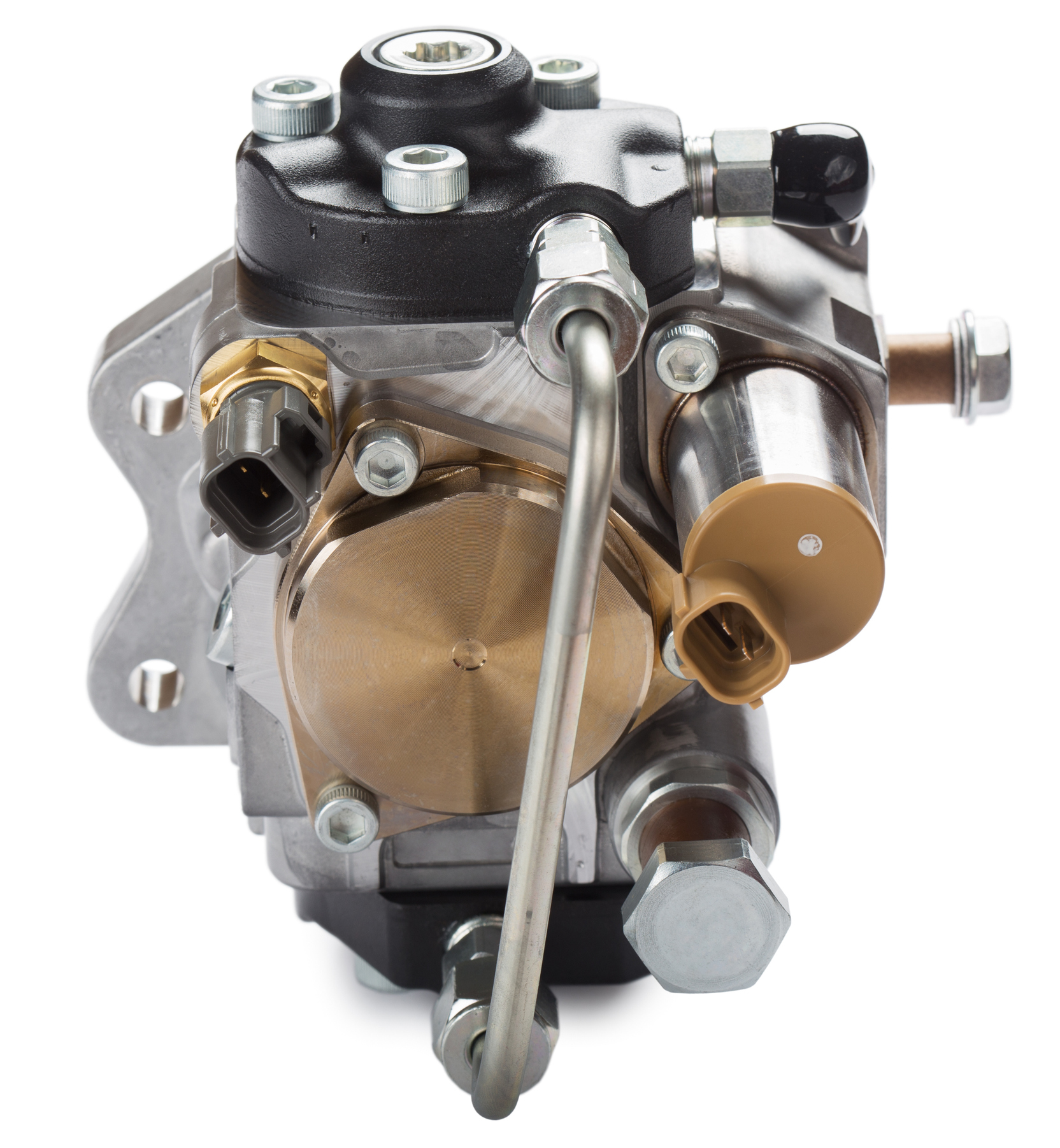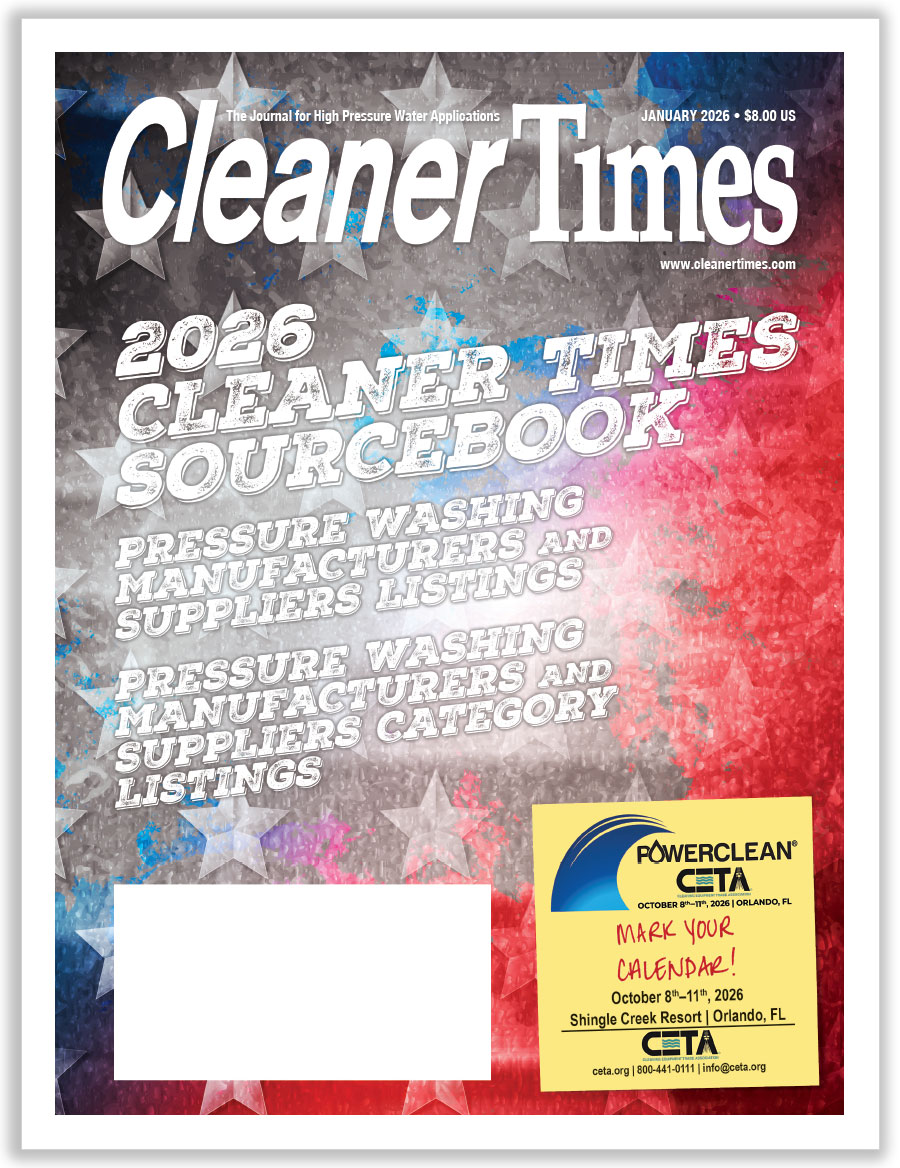
Troubleshooting Fuel Pumps
by Diane M. Calabrese | Published November 2025

A burner that stops working. Could it be a fuel pump issue? Perhaps.
“This is not a great topic as a fuel pump is kind of like a toothache,” says Roy Pennington, owner of Hi Pressure Cleaning Systems Inc. in Houma, LA, “You don’t spend a lot of time worrying about it unless it starts hurting.”
True enough. Teeth and fuel pumps both get high marks for strong and reliable performance in the 21st century when treated well.
But occasionally there is some ado, or commotion, in one realm or the other. We stick to fuel pumps here, but first a clarification.
“Which one?” must be the first question answered before we discuss troubleshooting a fuel pump in the context of a pressure washer.
Contractors using pressure washers may interact with more than one fuel pump during their day. Thus, “which one?” is a priority question when discussing fuel pumps, explains Pennington.
“Hot water, gasoline-powered skids will generally have two fuel pumps: one for the engine and one for the burner,” says Pennington. “Cold-water units will generally have OEM—Briggs, Kohler, or Honda fuel pumps—as part of the package. Electric hot-water units will have one fuel pump for the burner.”
Let’s start with gasoline- or diesel-fueled engines. Are problems with fuel pumps on combustion engines overstated?
“Yes, rarely does a fuel pump on an engine cause problems unless it is due to operator error,” says Pennington, “such as gas being poured into the diesel tank.”
Would the absence of a fuel pump (because of the presence of an electric motor) help to make an electric-driven system (pressure washer) more popular than a system driven by a combustion engine because fewer problems are anticipated? In other words, one fewer fuel pump to maintain would reduce the number of troublesome issues with fuel pumps for the owner, would it not?
That would only be true if pressure washer owners chose machines based on fuel pumps, but they don’t.
“The fuel pump is not involved in the choice of gas versus electric,” says Pennington. “The application is the issue; is sufficient electrical supply available?
“Five gpm at 2000 psi is going to require a minimum of 230 volts of power, or a 16 hp engine,” continues Pennington. “If it is a gas engine, with fuel tank on top of engine, gravity does the fuel delivery; and the only fuel pump will be on the burner. If there is a remote tank, then an electric 12 volt or a diaphragm fuel pump operated by the engine’s pulsating base pressure operates the fuel pump for the engine.”
If gravity moves (delivers) the fuel, the engine does not have a fuel pump as Pennington explains. And, again, when there is a fuel pump on the engine, it’s unlikely to be a problem.
For the burners, are problems with their fuel pumps overstated? “No, the problems are not overstated,” says Pennington.
In the case of burner fuel pumps, the role of the operators of equipment tends to be understated, explains Pennington. “Water and contaminated fuel are a major issue. I have seen an operator pick up any bucket lying around on the work yard and go fill the bucket from the drain on the bottom of the bulk tank and pour it into the burner fuel tank—trash, water, precipitate and all.”
Equipment operators who “don’t care” about the consequences of approaches are a problem, says Pennington. Any disconnect with ownership or a not-my-money attitude may lead operators to do what they should not, such as “run an oil-fired burner without fuel, not knowing the fuel being pumped is the lubrication of the pump itself.”
In general, it’s the burner fuel pump most likely to cause problems, and it causes them “due to operator error and abuse,” says Pennington.
Troubles with fuel pumps on engines and fuel pumps on burners often have the same origin. That origin is operator error or operator abuse of the pump.
Take two common issues with the fuel pump on a pressure washer engine. “Nasty ethanol-damaged diaphragms are a problem for fuel pumps on engines,” says Pennington. And there are also “unknowledgeable operators who think a remote five-gallon outboard type fuel tank needs an outboard priming bulb and blows the diaphragm.”
Failure of the fuel pump on the burner may occur “due to dirty plugged-up filters, dirty fuel, gas in diesel tank instead of diesel, or ruining the pump by running it with no fuel,” explains Pennington. He adds that the best prevention is to change out the operator, but that may be difficult.
Suppose the owner is the operator. That’s a good thing because the owner is invested in the performance and longevity of the equipment, explains Pennington.
But to make certain to keep the good thing going, the operator should commit to changing filters when needed and not running the unit without fuel, says Pennington. “And don’t make non-factory improvements to the system based on your knowledge that ‘you know a guy who dated a girl whose brother once worked as a technician.’”
Overall, Pennington observes that fuel pumps (like healthy teeth) do not get a lot of attention. “In 34 years I have never been queried on ‘what kind of fuel pump’ makes a burner work, or had anyone ask about its efficiency rating.”
The lack of inquiries follows a pattern, though. “Did anyone ever ask the car dealership, what kind of fuel pump is on a 5.7-liter engine?” says Pennington.
Amplification
Two voices—unless at odds—are stronger than one. When offering perspective on things like troubleshooting or maintaining equipment, one voice amplifies the other. With the reinforcement, it’s more likely that recommendations will not be missed.
Here, Roy G. Chappell, CEO of Chappell Supply and Equipment in Oklahoma City, OK, gives us more advice about fuel pumps. We start with the perception question.
Should the absence of one fuel pump in an electric-driven power washer make the system more popular, given it may have fewer problems with one less fuel pump to maintain? “It’s true that electric cold-water units don’t require a fuel pump, so there is technically one less part to maintain,” says Chappell. “That is what makes them a good option for light residential cleaning.
“However, in a commercial setting, hot water is key for cleaning effectively and quickly,” continues Chappell. “To have hot water, you need an engine and burner system, which means using fuel pumps. While that adds another component, the increased cleaning speed and efficiency of hot water far outweigh the small amount of extra maintenance.”
In fact, “extra” is a relative term. With regular maintenance, modern-day fuel pumps on engines are exceedingly reliable, explains Chappell.
Then, what of the fuel pumps on burners? Are problems with them significant?
“The real issue isn’t the pump itself but the fuel quality going into it,” says Chappell.
“Water or debris in the fuel is the most common cause of burner trouble, not the pump failing,” explains Chappell. “Think of it like aviation—before takeoff, pilots drain a small sample of fuel to check for water because even a little contamination can cause big problems.”
A nettlesome fuel pump on a pressure washer may not invite the calamity possible with an aircraft failure. But the check for water in a pressure washer fuel pump derives from the same principle.
“Taking a few minutes to check for water in the tank or pump can prevent issues,” says Chappell. “Fuel expands and contracts with temperature changes, and condensation will settle at the bottom of the tank. That’s why, growing up on the farm, we never poured the last bit from the fuel can into equipment—that’s where water collects.”
In fact, the source of fuel pump problems is often misplaced. “The most common issue is water or debris in the fuel, not the pump itself,” says Chappell. “Using clean cans, avoiding the bottom of the container, and draining the system monthly prevents nearly all problems.”
A preventive approach preempts the need for much troubleshooting. “With clean fuel and basic checks, burner pumps are extremely reliable,” says Chappell.
If a pressure washer has more than one fuel pump, is one of the fuel pumps more likely to pose problems than the other? “Yes, but not in the way most people think,” says Chappell.
“Neither the engine fuel pump nor the burner pump is inherently unreliable,” explains Chappell. “Most problems come from fuel quality, not the pump itself.”
So where do most problems begin? “Dirty cans, water, or debris are real culprits,” says Chappell. That’s why it’s important to use a clean container, drain off any water in the engine fuel pump once a month, and drain the water separator on the burner.”
Maintain the fuel pump and there will be little need to troubleshoot. “Replacing the filter element every six months keeps everything running smoothly,” says Chappell. “These simple steps may take ten minutes a month and can save hundreds of dollars a year in labor, fuel, and pump repairs”





